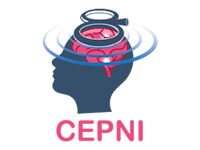Calderón-Moctezuma, A. R., Reyes-López, J. V., Rodríguez-Valdés, R., Barbosa-Luna, M., Ricardo-Garcell, J., Espino-Cortés, M., … & Hernández-Montiel, H. (2020). Improvement in borderline personality disorder symptomatology after repetitive transcranial magnetic stimulation of the dorsomedial prefrontal cortex: preliminary results. Brazilian Journal of Psychiatry, 43, 65-69.
Objective:
Current treatment for borderline personality disorder (BPD) involves psychological and pharmacological interventions. However, neuromodulation techniques such as repetitive transcranial magnetic stimulation (rTMS) may positively affect BPD symptomatology. The objective of this study was to evaluate the clinical and neuropsychological effects of rTMS on the dorsomedial prefrontal cortex (DMPFC) in BPD patients.
Methods:
Fourteen patients with BPD were randomized into two groups (active vs. sham) for 15 sessions of rTMS on the DMPFC. Clinical effects were measured using the Borderline Symptoms List (BSL), Clinical Global Impression Scale for BPD (CGI-BPD), Borderline Evaluation of Severity over Time (BEST), Hamilton Depression Rating Scale (HDRS), Hamilton Anxiety Rating Scale (HARS), and Barratt’s Impulsiveness Scale (BIS). Neuropsychological effects were determined by a Stop-Signal Task (SST), the Wisconsin Card-Sorting Test (WCST), and the Iowa Gambling Test (IGT).
Results:
Within-group comparison showed significant differences (p < 0.05) in CGI-BPD (total score and six of nine psychopathologic domains), BEST, HDRS, HARS, and IGT scores for active modality.
Conclusion:
The 5 Hz-DMPFC rTMS technique was well tolerated and lessened the severity of BPD symptomatology, especially abandonment, affective issues, interpersonal relationships, suicidal behavior, anger, and paranoid ideation. Cognitive improvement was seen in decision-making. Additional studies are needed to fully evaluate the effects of rTMS on BPD symptomatology.
Clinical Trial Registration:
NCT03832777.
